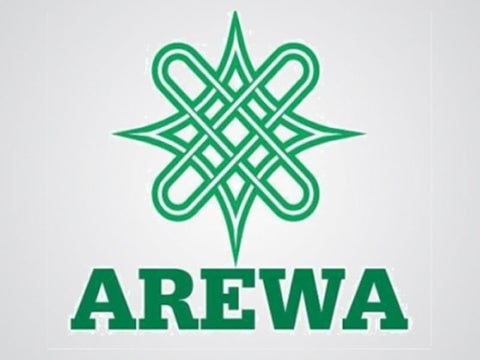The Northern Nigeria Economic Development Council (NNEDC), a new coordinating organization aimed at promoting industrialization, luring investment, and harmonizing development policies throughout the northern area, was established yesterday by the Northern Elders Forum (NEF).
Following the successful conclusion of the Northern Nigeria Investment and Industrialization Summit (NNIIS) in Abuja, where attendees committed to more than $10 billion in new investments in the fields of power, mining, and agriculture, the announcement was made.
The Forum stated in a statement signed by Prof. Ango Abdullahi, Chairman of the NEF Board of Trustees, that the NNEDC would act as the institutional framework for carrying out a Northern Nigeria Economic Development Masterplan, emphasizing private capital, policy coherence, and security as the cornerstones of the region’s economic transformation.
A wide range of stakeholders, including representatives from the Federal Government, northern governors, the NNDC, the private sector, development partners, financiers, academics, and civil society organizations, came together for the two-day summit with the theme “Unlocking Strategic Opportunities in Mining, Agriculture, and Power (MAP 2025).”
“The summit also included Deal Room/Matchmaking (B2B, B2G) sessions and exhibitions of investment opportunities by the 19 Northern Nigerian States’ Investment Promotion Agencies and Corporate Sponsors,” he said. Over the following five years, significant investments totaling more than $10 billion were promised in the areas of mining, agriculture, and power.
Additionally present were delegations from Saudi Arabia, Bangladesh, South Africa, Canada, India, and Turkey, all of whom indicated their willingness to invest billions of dollars in the region’s developing industries.
High-level speeches, panel discussions, strategic showcases, and masterclasses examining the mining, agricultural, and power sectors’ strengths, obstacles, and investment prospects were all part of the summit.
President Bola Tinubu opened the summit by reaffirming the federal government’s commitment to reviving Northern Nigeria’s economy through institutional capital mobilization and partnership, as represented by Mr. Wale Edun, Minister of Finance and Coordinating Minister of the Economy.
In response, NEF thanked the President for his support and promised to hold him accountable for fulfilling this national commitment.
In order to commit their states to a single regional economic vision, the governors of the North West, North East, and North Central regions signed the Northern Nigeria Economic Development Charter during the occasion.
Coordinating the execution of the Northern Nigeria Economic Development Masterplan (NNEDM), the newly established NNEDC will function under the joint supervision of NEF and the Northern Nigeria Governors’ Forum (NNGF).
Within 60 days, a Joint Implementation and Monitoring Taskforce (JIMT) will release an operational roadmap and supervise transitional measures. To monitor quantifiable results like employment generated, energy capacity added, and investments mobilized, the NNEDC will release scorecards every three months.
NEF Director-General Prof. D.D. Sheni also spoke, stating that the occasion represented “a decisive pivot from rhetoric to execution” in the development of Northern Nigeria.
“Northern Nigeria can turn its endowments into sustainable growth if security is the cornerstone, policy coherence is the framework, and private capital is the engine,” he stated.
As it guides the area into a new era of coordinated economic development, NEF reaffirmed its dedication to openness, responsibility, and inclusive prosperity.
“There are important deposits in many states, including gold, copper, lithium, tantalite, and granite,” he continued. Potential for localized supplier ecosystems, local processing, and mineral-based industrialization.
Without robust ESG measures, there is a possibility of illegal mining, environmental deterioration, and social strife. Mineral resource data is inadequate.
Credible, reliable permits are required, as are clear royalties, community involvement, dispute resolution, and E&S compliance. Reforming the control of mining and the development of mineral resources is necessary.
In order to finance generation, transmission, distribution, and off-grid/mini-grid solutions, participants placed a strong emphasis on mobilizing capital-market instruments, such as infrastructure funds, sukuk/green bonds, and project bonds.
To speed up the delivery of infrastructure, use standardized PPP frameworks and model contracts with clear risk allocation and procurement.
“Institutionalize land administration reforms, including clear titling, digital cadastre, and time-bound consent, along with grievance redress mechanisms and Community Benefit Agreements.”
Using DFIs, pension funds, sovereign and diasporic capital, and constructing blended-finance vehicles and thematic instruments (green, sukuk, infrastructure, and project bonds), “launch a Northern Nigeria Capital Mobilization Program.”

